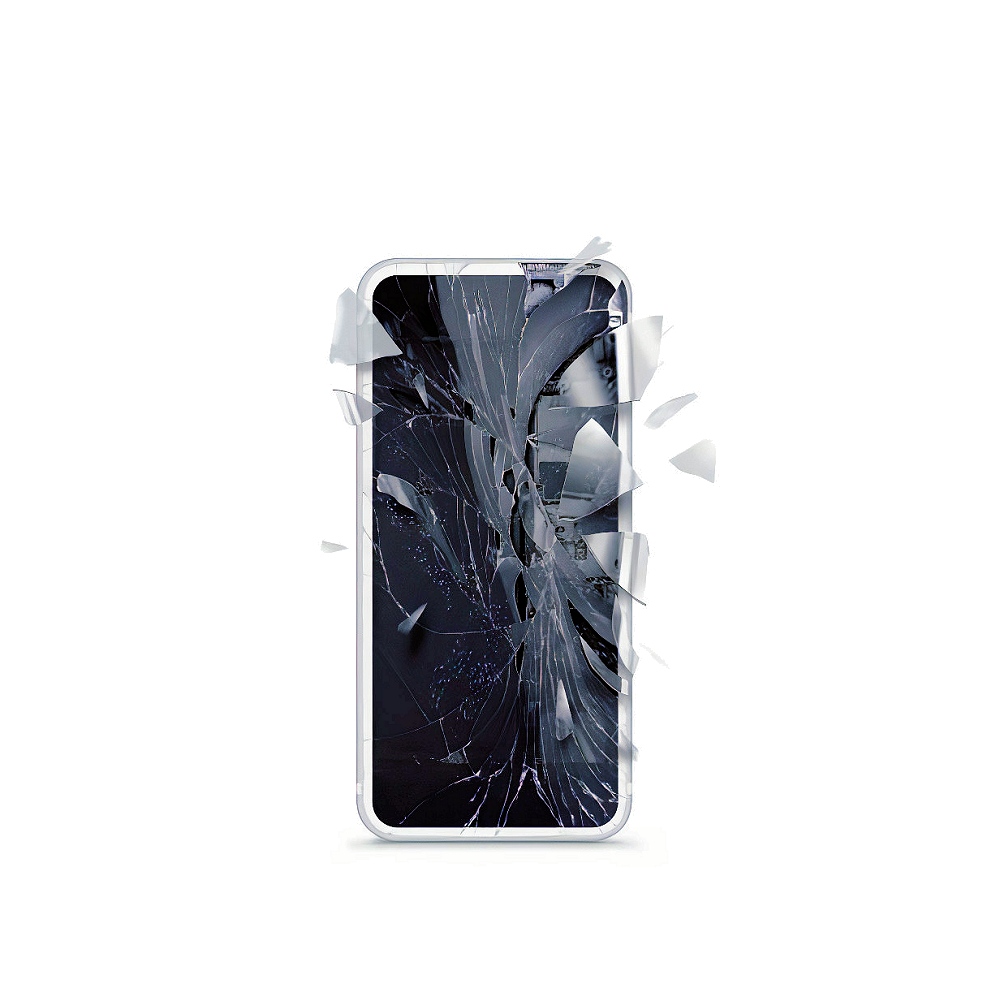Smartphone CEOs dumbfounded when no one wants to buy their $1999 xPhone 25 Pro Max XXL Z-Flip 4d-folding hextuple AI 8k camera with Bionic 10Ghz chip including real neurons
Which is ironically the same as the $1999 xPhone 24 Pro Max XXL Z-Flip 4d-folding hextuple AI 8k camera with Bionic 10Ghz chip including real neurons from last year.
Nah, the 25 has a stylus. The 24 didn’t. The 26 won’t either.
You’ll have to get the 26+ PRO ULTRA for $2699 if you want the stylus back.
The 27 will come in an exclusive shade of grey! Instead of last year’s exclusive shade of dark grey. Rumor has it they might even try a grey-green in 2030.
Thats gonna be my next phone! Guaranteed!
Not surprising. I used to update every 2 years but my last couple have had a 3 or 4 year gap.
As it should be really. These can be very expensive devices that only make sense if you get a decent life out of them.
I just don’t see the point of upgrading every two years, and even if I did I’m buying used at this point.
I’m on iPhone and despite all the fanatics creaming their pants over each release, very little actually seems to change.
I know a guy with a 6 year old phone, and when he listed off the features it made me realise how little things have actually changed since it was released.
deleted by creator
Yeah, marginal camera improvements are kinda meh to me. Has there really been anything that significant since Face ID?
5G is the only thing that springs to mind for me, but I’ve honestly never felt that 4G held me back on a phone considering it works perfectly for playing videos…
Next iPhone gets usb c.
That’s great, but considering everyone’s already got the cables they need, for most people it’s not really a feature to upgrade for.
Most people have 1 cable they need for their phone and a lot of usb c. Upgrading means no more going to find that 1 unique charger.
Yeah, it’s nice, I just don’t think that feature is worth upgrading for most people.
Face ID and Apple Pay were jumps forward in the way that people use their phones and were quite exciting, introducing USB C is just backtracking.
Buying a handful of spare chargers is much cheaper than buying a new phone.
Absolutely not. I don’t have a laptop, have a family group that have between us, iPhone X, XS, 11 and an old 7max. All chargers I have owned for the last 10 years are USB A at the charger. So the cable will be USB A to lightning for all the phones and to something else, like micro usb for other devices like a rechargeable bike light. USB C is just to cause e-waste and of no practical use.
Android has gotten high refresh and variable refresh which is great for battery life. Other than that just raw speed, which is usually just throttled down for better battery life and monstrous huge screens.
As far as I can see on the apple side they haven’t seen anything but incremental, and sometimes increments in the wrong direction, changes in the last 6 years.
Emergency satellite SOS was a massive selling point for upgrading to the iPhone 14 to a lot of people. To your point though, my 2015 iPad is just now being dropped from future updates.
Meanwhile in Canada it’s being recommended to disable emergency SOS on both iPhones and Androids because of how many false 911 calls they end up placing, causing first responders to waste time on non-emergencies.
These are two separate features.
I doubt many people actually have a use case for satellite SOS though.
There’s some pretty remote places in the US. So you don’t need it 'till you need it.
Very interesting, do you have any source or references that springs to your mind? I have emergency SOS enabled, but it never happened to me that it has been falsely triggered. And I can’t imagine many scenarios were it would be.
I had it enabled for a bit and everything worked fine, but I was worried about accidentally triggering it so disabled it before hearing about the false alarms.
Here’s an article from the CBC about it.
Recently , 5G in the 12, 144hz in the 13 pro , satellite and crash detection in the 14 , this year usc-c. Upgrading that often is an enthusiast thing really (or marketing).
deleted by creator
They need to give us back the headphone jack, that’s a feature worth getting a new phone for, but then again we can just use an old phone instead.
deleted by creator
Have a framework, probably the 1st gen.
It had a big bug where it would go to sleep and never wake up, but I finally found a firmware upgrade and it’s been perfect since, maybe a bit on the power hungry side while asleep.
You might want to consider a used thinkpad, they last literally forever and you can get a decent one for $500 or so.
Just my thought, the fw is great, tempted to upgrade the mobo at some point, or get the 16, but it’s not cheap, it’s more about being able to upgrade and the flexible i/o, which is actually cool.
Or you could put a usbc dongle on all of your headphone cables for $1 each and finally move out of the 80s tech bubble.
deleted by creator
You say it’s from the 80s like it… matters at all whatsoever. It works, and it works well. It doesn’t stop me from adding an extra useless bit of cable on the end of them either, if that’s what i really wanted to do.
Reading this on iPhone X
I have an iPhone 8 and see no reason to update in the near future.
When smartphones first took off, each new one was a large upgrade. But each passing year sees new phones being more and more iterative. There’s hardly any difference at all anymore between individual years.
I’m at the point now where I keep my phones until they break or stop getting security updates.
When smartphones first took off, each new one was a large upgrade
And they were subsidized by the cell phone company, so they only cost $200 (In many places in the US, at least).
Yeah definitely this is a big factor.
I have a small pot I save into for my phone upgrade each month. Waiting longer means I get a shiner new phone when I do finally decide to upgrade.
And once I have it I want it to last as long as possible!
When it used to be just part of your contract you wouldn’t think about, just get a new one when your contract said it was time.
There wasn’t even a maximum on the contract. When I got my first two phones, I agreed to a 2-year cellular contract. If I closed my account or moved providers before that, I had to pay AT&T some amount of money to kill the contract. After those two years were up, I could do whatever I wanted. I was then on a month-to-month payment, like standard cell plans today. They just wanted to make sure to recoup their money over 2 years for subsidizing my cheaper phone upfront.
Now, the subsidization is more like a subscription fee, where there are additional fees on the bill each month toward the phone and the cell phone company encourages you to get a new one once it’s paid off. You’re still paying full price for a phone. Possibly forever.
Unless you’re doing very specialist stuff, phone tech peaked a while back for the average user who’s only going to do some web browsing, social media, listen to some tunes or watchbsome funny videos. All the little incremental changes aren’t groundbreaking for that use case.
Until foldables are both reliable and cheaper, phones have stagnated in terms of visably appealing features.
Yep, I’ve just gotten a Pixel 7 Pro after 4 years with a Oneplus 8 Pro and really it’s a very incremental change. The camera on the P7P is incredible, just astounding, but on the Oneplus it was amazing. Otherwise they’re very much of a muchness.
I’m thinking I’ll hang on to this one for another four years and hopefully by then foldable will be well tested and slightly cheaper.
What’s funny is that the camera on the Pixel isn’t a hardware thing. It’s mostly the post processing software that Google uses. So even that doesn’t require upgrading to a new phone that often, since the hardware isn’t as important as it once was.
Yup. Price per flop or whatever is cheaper than ever but after a certain point it doesnt matter. Also I don’t do specialist stuff on my phone. I do it on my desktop rig that can actually run arbitrary code I give it.
I do have a few friends with money who just need that latest 50 megapixel phone camera or that 4k phone screen. But I don’t much care.
Not sure I agree that phone tech has peaked a couple years ago for the average user. What technology peaked years ago?
Camera? Efficient processors? Display panels? Biometrics? Batteries? Cellular/Wi-Fi modems? Emergency satellite connectivity? I cannot think of a single technology (I am on iPhone 14 Pro) that is not at least marginally better than a year or two ago, and pretty meaningful improvement from ~5 years ago.
The rate of technological improvement has slowed or plateaued, but there is a pretty reasonable argument that current flagship technologies are the “peak”, even for average user, if only incrementally. I agree that this plateau, coupled with upgrade cost, is making it a harder choice to decide to upgrade for average user.
If anything if you just go with “got good enough for the average user years ago”, that works.
I’m on a cat s62 pro with a 5 year old Snapdragon 660, and, while it shows its age, it functions just fine and will for the next few years.
Agreed, but that is not what OP said.
Cameras are mostly software improvements these days. I argue displays have gotten worse with the drop from QHD to 1080p. Many think that the back fingerprint readers are better than the under screen or facial ones. 5G is mostly pointless. All while costs have increased greatly. A phone today doesn’t better meet my use cases than the phone I had 6 years ago and in many ways is worse (lower res screen, no headphone jack, inflated prices).
Many think that the back fingerprint readers are better than the under screen or facial ones
They are. I could have my phone unlocked before even seeing the screen with the one on the back. The under screen one sometimes takes a couple tries and takes longer when it works. It’s cool tech, but the stand alone reader was better.
You’re on apple, they certainly haven’t had a user noticeable change for the last 6 years.
For me on android the last “must have” was variable refresh up to 120hz. I’ll probably even do a battery upgrade on my s21 when it can’t last a full day rather than hit an s25.
The only blocker I’ve hit with is yuzu on android, which kind of just doesn’t work at all still.
Okay. Trying picking up a iPhone X (releases Sep 2017) vs iPhone 14 Pro and see the difference. There are a lot of quality of life improvements that make a noticeable difference in user experience.
- 120hz
- better battery life
- 2x as fast charge
- much brighter screen, always on if that interests you
- triple camera sensors, with wide lens vs double, no wide lens
- LiDAR to improve portrait photos
- faster Face ID (used 100s of times a day)
- satellite communication for emergencies
- MagSafe charging/docking ability
- 5G (really only find it useful for hotspots)
I can confidently say everyone of these features has improved my user experience. None of them by their self are earth shattering, but taken as a whole, the constant iterative improvements have amounted to quite a lot.
As someone who just had an Galaxy S7 or something for 6.5 years this all sounds way overkill. I’d probably disable everything possible to get even more battery life out of it.
If someone uses this phone for gaming or working or for documenting/photographing a trip or something, then its maybe worth it but for everyday use its just overkill imo
Still using an iPhone X and the only things in your list that interest me are faster charging and LiDAR. But nothing to do with portraits; I want it for 3D scanning objects for CAD models for 3D printing. But I’d use it maybe a few times a year.
as someone with an XR the only thing on that list maybe the camera and sat coms, but I have a DSLR and InReach device
It’s interesting you claim “they certainly haven’t had a user noticeable change for the last six years”, and then cite a feature addition “on android” which was implemented on the iPhone 13.
I could understand upgrading so frequently at the advent of mainstream smartphones, where two years of progress actually did represent a significant user experience improvement - but the intergenerational improvements for most people’s day-to-day use have been marginal for quite some time now.
Once you’ve got web browsers and website-equivalent mobile apps performing well, software keyboards which keep up with your typing, high-definition video playback working without dropped frames, graphics processing sufficient to render whatever your game of choice is for the train journey to work, batteries which last a day of moderate to intense use, and screen resolutions so high that you can’t differentiate the pixels even by pressing your eyeball to the glass - that covers most people’s media consumption for the form factor, and there’s not much else to offer after that.
Yeah my semi-techie friend still has an S9+ from over 5 years ago and honestly he isn’t really missing anything beyond a few iterative improvements.
S9+ from over 5 years ago
he’s been missing out on 3 years + of security updates kek
*cries in Samsung
If the batteries were easily replaceable, and the software didn’t continually get bloated, and companies kept issuing security patches, sure.
I kept my last desktop system for 10 years. Actually I still have it and it performs sort of ok (I was running Mint the whole time). But I upgraded and the performance improvement was actually worth the considerable cost. I’ve gotten similar life out of my other desktops and laptops over the years.
I think at least 5 years or preferably 10 is reasonable for smart phones.
This! and the £1200 price tag.
Not surprising when flagship devices have more than doubled in price in over the last decade.
That and the fact that many modern devices feel like compromised devices with purposeful downgrades despite the huge cost increase.
I want a cell phone with a headphone jack, physical navigation buttons, and a rectangular screen like they used to make. At this point, I’ll have to go with a flip phone if I want all of those features.
I’m not saying you’re wrong, you can want whatever you want, but out of curiosity, why physical navigation buttons? They’re a point of failure over time, make dust and water ingress more of a problem. While I like physical buttons for some things; power, volume and physical mute switch are all great (I wouldn’t hate a shutter button too) but at least they have the virtue of living round the sides and top of the phone, not the front of the phone like nav buttons, which take up space that could be screen (or just a smaller phone). It’s not like a physical home or back button is actually any more responsive than a gesture based nav. What’s the attraction to them?
With capacitative buttons and on-screen buttons, there are times where I hit them on accident, which is annoying. The little bit of extra force you need for physical buttons makes this much less likely. I also don’t like when on-screen buttons are hidden, and I am worried that I would trigger gestures on accident.
Regarding flagship models: I found that previous years flagship or current mid-range with similar specs (I use gsmarena to compare) is a good compromise between speed and lifespan, and always go for more memory, today’s android uses about 20gb so 128gb must be absolute minimum if you plan to have a few apps installed.
What do you mean “instead of”? I always heard it was a three year product lifecycle anyway, which is already annoyingly often.
I only replace mine because the batteries are crapping out. Usually it’s 3-4 years.
Just get a the battery replaced. With the new rule for the EU forcing companies to make the phones with user replaceable batteries, it’ll be even easier.
I thought about it last time but the whole thing where I’m not getting OS updates anymore make me anxious. I’m not sure that’s actually a problem though.
It’s a little more hands on, but when you reach the end of OS updates support, you can switch to a community-supported OS.
Like Linux? I don’t know anything about it. I’d definitely try.
Sorta. (Android is technically Linux) What you would want to look into is a custom Android ROM. Something like OmniROM or ArrowOS.
As a side note though, installing can be a bit technical for some people and some apps don’t like to work outside of the “security” of a factory version of Android. If you are interested, I would browse around the custom Android communities here (if there are any yet) and check out sites like https://www.xda-developers.com/
Is that where you have to root it and sideload the OS? I’ve read about it.
Rooting is a slightly separate thing from sideloading a custom rom, rooting gives apps you give permission to access to system files whereas sideloading a rom replaces the system files but doesn’t necessarily give you root access. Both involve a similar process of unlocking the bootloader, installing a custom recovery and flashing a file so it is easy to get the two things mixed up.
Yeah
Also mention lineage OS, Graphene OS and Calyx OS too
No, there are unfortunately no truly workable Linux OSs for phones yet AFAIK. But there are plenty of Android-based OSs that work really well, and are usually maintained for quite a while, depending on the popularity of your device. Look into LineageOS, or Pixel Experience, to name a few.
There’s ubuntu touch. I’m not sure how many phones that works on though.
When my screen is so broken I can’t use it anymore.
i use electronics until they’re unusable. my last phone lasted 6 years, my laptop lasted 11 years. i don’t have a tv or anything else.
No TV. How do you watch coronation Street and EastEnders?
On his smart-kettle, obviously.
£8.99 a month for basic kettle. £10.99 for kettle+
£2.99 a month for the FastBoil™ setting.
I watch all of my shows from laptop personally (not the person you are replying to). I don’t care super hard about the big screen. And it means I can do other things on my other monitors at the same time.
I like working at the living with the TV precisely because it offloads the work to a different device. So compiling and running heavy scripts doesn’t affect the video playing and the reproduction doesn’t compete for CPU/GPU cycles or internet bandwidth with work tasks. It’s not about the big screen (though I do enjoy big screens) but more about separation of concerns.
i limit how much entertainment i consume. it’s improved my mood.
I’ve had my tablet for 9 years, and I’d have had my phone for 4 years now had it not become faulty.
Devices have reached a point that they just don’t need upgrading often, unless you’re using them for video games or something cutting edge.
And of course, they’re super expensive now too, and we’re living in the worst cost of living crisis of our generation, struggling to pay for food. Of course we’re not going to waste money replacing something that works fine 🤦♀️
I kept my old Sony Xperia right up until I could feel a bulge on the back of it, lol.
I don’t upgrade until the thermal runaway takes my device from me!!! Lol
I don’t upgrade until my phone decomposes lol
Isn’t that due to a potentially hazardous swollen battery though? It’s best to replace it before that stuff happens
Yeah I’ve already got a new phone.
Devices are prohibitively expensive these days. The marginal gains from improved tech is also not used to benefit the end user. Devices are not working for the one that pays for it. If only they would release a flagship device with unlocked boot loader, open drivers and a pledge to support it for 10 years. I would buy that. Otherwise I see no need to upgrade.
It’s less that the improvements are marginal (modern flagships are significantly more powerful than 4 years ago for example), it’s just that 90% of people have absolutely no use for most of that increased power. The most intensive thing most people do on their phone is watch media.
I know a lot of young men who, if they have money, just have to have those extra gigaflops and that 4k 90hz phone screen.
Then 95% of the time they browse the web and use it for twitter, etc… 🙄
That is going to be a problem for apple, better make the next iPhone’s battery be unreplaceable and self destruct after 2 years.
I’ve been using iPhones since iPhone 4. So far I’ve had the iphone4, iPhone 7+ and iPhone 13max.
All my phones have been replaced upon end of updates. I think you mix android and iPhone here - I know nobody under 70 that manage to keep an android over 2 yearsAnd pretty much everyone in my family has used our android phones for 4+ years for as long as I can remember.
It’s almost as if anecdotes are worthless!
As far as I know, until recently no android phone manufacturer except Google provided updates to their phones past 1-2 years. So while it’s been possible, I have never recommended keeping an android phone past 2 years.
See https://www.androidauthority.com/phone-update-policies-1658633/ for some background info if you think it’s just anecdotes
Low end devices normally last less than high end ones. It’s easy to forget that, as all iPhones were designed as high end, that phones can still be made out of cheap plastic and cost 200 bucks. Any android device in the sane price range as the iPhone will last at least as long. (And, for context, I’m writing this from an iPhone 11)
Oh sorry, this wasn’t an iOS-vs-Android dig, all the android manufacturers are constantly near bankruptcy, but apple has shareholders who are expecting growth, they will be hurt the most by consumers holding their on to their phones longer. (Samsung is reporting over 90% profit shrinkage, the Chinese brands are probably just PLA plants to capture as much communication as possible worldwide without a profit motive to begin with)
TIL that Samsung is near bankruptcy.
Far from it, it their profit is down like a lot.
I’m agnostic when it comes to technology. The choice of iPhone vs Android both at my previous and current workplace has been and is based on what they provide. Currently we are iPhone, Samsung and Fairphone only - previously iPhone only.
When it comes to age of iPhones (in US) I see the same pattern as in my current org. https://9to5mac.com/wp-content/uploads/sites/6/2023/05/how-long-users-keep-iphone.png
My dad is still using my old OnePlus one from 2014. Works fine for him. Using lineage OS. I know it doesn’t get security updates but he’s not stupid and doesn’t use it for anything security critical anyway.
I’m way under 70, and I’m using an S10e I brought in 2019. So four years.
Updates stopped coming in March. But I’ve no plans to replace the phone yet. Since this one works fine, and very few phones released since have the features that matter to me.
https://wiki.lineageos.org/devices/walleye/ Pixel 2, released 6 years ago, supports the current Android version via LineageOS.
Not surprising. For most people smartphone reached a point where replacing every two years is pointless. My phone is also 4 years this year, still holds his battery and works flawlessly.
I’ve been upgrading every two years because usually they have some promo for trade ins (Samsung) so I’m getting a new battery and warranty (and slight improvement of camera) for about $200
Only just replaced my close to 4 years old OnePlus 7 Pro, because it just bricked out of the blue. Would have happily used it for a couple more years. Practically the only improvements on my Pixel 7 Pro, compared to the OnePlus, are battery life and the cameras (especially since I was running Pixel experience on it anyways).
I think it is mainly battery life which drives upgrades now. Unless you really want the best camera. It’s the only thing that seems to improve for the last few iterations.
Everything else is pretty much perfected at this point, but batteries and tiny cameras are hard to perfect. Still have to wait more than two years to see any meaningful improvements in either of those.
Yeah I mean the processing power and general hardware just got to a point where nobody really needs more. In fact my 4 year old phone has the same amount of RAM and similar processor to my new one lol. Unless you’re cutting edge 3D gaming it’s not needed to have anything more.
I upgraded only because of battery life, higher Hz screen, newer android version, and to get a wide angle lens. Now I have those even its like…what next? Camera quality is all I ever need, screen Hz is perfect. I’m not sure what will make me upgrade next time but if I replace battery down the line and use a third party OS then maybe it’ll go even longer!
I noticed the same trend for PCs in the last 20 years too. In the late 80s and throughout the 90s, things were advancing at a blistering pace. At the start of 1990, a common configuration was maybe a 20Mhz CPU and 16 MEGAbytes of RAM, and by then end of the decade, we broke the 1Ghz barrier and were putting 512MB-1GB of memory into our machines.
Yet now, I’m still playing recently released 3D games on a first generation quad core i7 from 2009 just fine (as long as nothing in the game starts spewing too many particles).
I’ve noticed that a lot of the reasons to upgrade now are artificial. My wife dug out an old PC to use two monitors recently, but still does the same tasks that she was doing a decade ago. The computer is ridiculously slow though because of ‘updates’.
Bog standard things like checking her emails and opening Word slow the computer for nothing. Even bare Windows runs slowly because of the graphics enhancements.
Yep, if you’re doing mundane office stuff, you might as well fire up a 386 with Lotus 1-2-3 and WordPerfect. Except for file formats and more shinyness, not a damn thing there has changed.
Also windows now just hates running on spinning drives and will get the 100% disk useage issue, the only fix I’ve found is swapping to an SSD. HDDs are pretty much only useable as secondary drives now.
When I looked at the S22 as a potential upgrade to the S20 I have now. It is basically a better camera but no SD card slot (yes they do huge capacities, but boy do you pay for it). So, actually a downgrade for me. Couple that with the fact my battery is still good. Keeping it until at least the S24 now.
To be honest, if my current phone had the a reliable way for me to change it’s battery, I would keep it for longer even! I got my custom ROM going with the latest updates, pixel ported cam. The only limitation I have is lack of 5g and reduced battery life. In all honesty, with chargers in my car, work and home, it hasn’t become a reason to change yet.
Yeah honestly I can see why manufacturers are so reluctant to put replaceable batteries in phones. It’s one of the main reasons people upgrade these days.
They have the handy excuse that it’s to make the phone waterproof and they will die on that hill it seems!
Even that is a lame excuse, waterproof phones event existed in the replaceable battery era! Speaking of the replaceable battery era, I remember those extended batteries. With a thicker back cover, we got even bigger batteries. It’s a pity how we have no choice now.
I’ve started to upgrade when iOS updates stop. As the cost of devices goes up, I just keep them longer so the cost per year is about the same.
I haven’t had an iOS device in ages, but Apple does seem to offer pretty decent support timespans for their phone hardware. Looks like it’s 6-7 years of support after the release date, which is respectable compared to the rest of the industry.
On the Android side, my phone stopped getting updates after 4 years, which feels too short to me. Not having access to Android 12+ wasn’t causing me any problems but I didn’t want to wait for some future bug, limitation or security flaw to emerge. I switched to LineageOS (just last night actually) to keep it going for another few years.


























